GOVERNOR SIGNS FINAL BILLS PASSED BY THE 2021 GENERAL ASSEMBLY
On Wednesday, July 14, Governor Mike Parson signed 13 more bills into law, representing the final pieces of legislation that were passed by the 2021 General Assembly. Among the bills signed were SB 26 (Eigel, R-Weldon Spring) and SB 53 (Luetkemeyer, R-Parkville), two bills that include provisions offering increased protections for law enforcement officers. SB 53 also modifies the residency requirements for Kansas City police officers to assist with recruitment efforts. Other bills signed include HB 297 (Wallingford, R-Cape Girardeau) that allows college student-athletes to earn compensation for their names, images, or likenesses. HB 349 (Christofanelli, R-St. Peters) was also signed, creating Empowerment Scholarship Accounts that will offer scholarships to qualifying students to attend a K-12 school that is located outside of their current school district.
July 14 was the deadline for Governor Parson to act on the 56 bills passed in 2021. Many of the bills signed will go into effect on Aug. 28, 2021, unless the General Assembly specified when a particular law becomes effective. Some bills contain an “emergency clause” that requires the bill to become effective upon the Governor’s signature. In other bills the effective dates were moved beyond Aug. 28.
Governor Parson vetoed a few bills that had been approved by legislators, including portions of the state’s FY22 budget, a closed records bill HB 362 (DeGroot, R-Ellisville), a transportation bill HB 661 (Ruth, R-Festus), a bill relating to public officials’ requirements to run for certain offices HB 685 (Chipman, R-Steelville), and a bill modifying several tax provisions SB 226 (Koenig, R-Manchester). The Missouri General Assembly will convene on Sept. 15, for its annual Veto Session when the Governor’s individual vetoes may be considered and could be overturned if enough votes to override a veto are cast by both legislative bodies.
JEFFERSON CITY COUNCIL APPROVES VIRTUAL COMMITTEE PARTICIPATION
On Monday, July 19th the Jefferson City Council elected to move forward with a proposal to regulate the use of virtual meetings for committees and boards. The COVID 19 pandemic has led to more and more virtual meetings and the Council decided to put some parameters on the use. The bill states that no more than half of the committee members be virtual at any given meeting and that no more than half of the committee’s meetings can be done virtually in a given year unless approved in advance.
CITY VOTERS TO DECIDE HALF CENT SALES TAX FOR CAPITAL IMPROVEMENTS THIS MONTH
On August 3rd, city residents will vote on Proposition 1, that would extend the current half cent sales tax for capital improvements that would bring in an estimated $5.6 million annually. The HBA continues to support this tax extension on both the city and county level as it is necessary to continue economic development and growth for our community. The tax extension would fund numerous projects within the city and would continue the funding of joint projects between Cole County and Jefferson City.
HOUSE BROADBAND DEVELOPMENT COMMITTEE ACCEPTS TESTIMONY
The Special Interim Committee on Broadband Development met for its second meeting on July 20, in the state capitol. The initial meeting of the committee was held June 10. Rep. Louis Riggs (R-Hannibal) is chair of the seven-member committee.
Witnesses from Pew Research Center, the Association of Missouri Electric Cooperatives, and the Missouri Farm Bureau testified.
Kathryn de Wit and Anna Reid from Pew Research offered insight and took questions on their area of broadband research throughout the U.S. While some states have made progress on providing high-speed, reliable internet, the “digital divide” has been noted during the past 18 months when many people worked from home due to the pandemic. De Wit estimated about 18 percent of Missourians lack high-speed internet. Other estimates given during the hearing were higher.
Three executives of rural electric cooperatives discussed their broadband expansion programs and needs during the hearing. Each one emphasized the need for more funding for the Missouri Office of Broadband Development in the effort to extend service to underserved areas.
Lynn Hodges, general manager of Ralls County Electric Cooperative in New London, said his cooperative has been in the broadband business since 2003. Members of the cooperative were in need of reliable internet services, and at the time only about 25 percent of its customers were served by wireless providers. In 2010, Ralls County Electric Coop launched its fiber network project, and became the first electric coop in Missouri to provide 100 percent fiber service. More than 80 percent of its customers subscribe to the service, Hodges said. Wireless service is also provided by the coop in the Mark Twain Lake and Mark Twain State Park area.
The cooperative borrowed $30 million to build out the 6,500-meter system, and has $20 million in debt now, Hodges said. Coops expect a 25- to 30-year debt payback, he noted. Easement concerns, utility pole attachments, hills and rocky soil . . . all are some problems faced in expanding broadband, but are solvable. The funding model is the issue, Hodges said. Burying underground fiber lines cost about 300 percent more than installing overhead lines on utility poles, he said. Overhead networks need eight to 12 homes per square mile to pay for the system.
Currently, the coop lacks 400 customers from completely serving all of Ralls County. Homes that do have a fiber internet connection show an increase in value of $7,000 compared to homes without internet.
Hodges said, “some of the coops are investing hundreds of millions of dollars” for broadband expansion. “With adequate partnership and funding availability, we can serve everyone.”
Other coop executives presenting information included Aaron Bradshaw, CEO of Co-Mo Electric Cooperative of Tipton and Sunrise Beach, and Sean Vanslyke, CEO and general manager of SEMO Electric Cooperative of Sikeston.
B.J. Tanksley and Janie Dunning of the Missouri Farm Bureau rounded out the committee presentations. Dunning said her definition of what needs to be done is so “everyone has access to reliable broadband at the speed they need to accomplish what they do at a price they can afford.” Today, some 29 percent or more of U.S. farms do not have access to the internet, she said. But without broadband, Missouri agriculture will fall behind.
FCC maps may show that Missourians are totally covered with broadband, but that is not the case. Reliable broadband is needed in rural areas for operation of “Precision Ag” equipment and to promote and market “ag tourism,” Dunning said. Some farm equipment is only as good as the GPS (global positioning system) that serves it. Rural areas are the most difficult and most expensive regions in which to expand broadband, she said.
STATE LAUNCHES COVID 19 VACCINE INCENTIVE PROGRAM
On Wednesday, July 21, during a press conference at the state capitol, Governor Mike Parson announced the launch of a statewide COVID-19 vaccination incentive program, MO VIP, to encourage vaccination among all Missourians, ages 12 and older. During the next three months, 900 Missourians who have or will choose to be vaccinated will win cash or education savings account prizes in the amount of $10,000.
“We understand that some Missourians are hesitant towards getting the vaccine, but we must all take personal responsibility and do right by our own health and that of our friends and family by getting vaccinated,” Governor Parson said. “This new program will complement our existing efforts to educate Missourians about the importance of getting the vaccine. Our current COVID-19 situation is serious. This Delta variant transmits faster than what we have previously seen and is more likely to impact children and the unvaccinated, so now is the perfect opportunity to get vaccinated and earn your shot at $10,000.”
The MO VIP incentivizes vaccination for those who have not yet been vaccinated as well as provides an opportunity for rewards for the 2.8 million Missourians who have already made the decision to be protected through vaccination.
Missourians who have received at least one dose of a COVID-19 vaccine are now able to enter to win one of the 900 prizes. The first drawing will be on August 13; drawings will occur every two weeks with the final drawing scheduled for October 8. Once Missouri residents receive a dose, they become eligible to enter the sweepstakes at MOStopsCovid.com/win. Once Missourians enter, their entry will be carried over through all the drawings. There is no need to enter more than once. The entry list will be reviewed, and duplicate entries will be removed prior to each drawing. A winner must meet all the following eligibility requirements:
- Must be a living citizen of the U.S. and a permanent resident of the State of Missouri.
- Must be age 12 or older.
- Must have received at least the first COVID-19 vaccination if receiving the Pfizer or Moderna vaccine or one dose if receiving the Johnson & Johnson vaccine, prior to the drawing date (records will be verified).
The Missouri Department of Health and Senior Services (DHSS) is partnering with Missouri Lottery to conduct a fair and secure program with a randomized selection process. DHSS is using federally funded Coronavirus Relief Funds to fund this campaign. This funding was approved under previous and current federal administrations for broad COVID-19 response purposes to include efforts to boost vaccine uptake.
Those without the ability to enter the sweepstakes online can get assistance by calling the COVID-19 hotline Monday-Friday from 7:30 a.m.-7:30 p.m. at 877-435-8411.
Additionally, local public health agencies that administer COVID-19 vaccines will now be eligible to provide a financial incentive of up to $25 for each vaccine recipient, up to a total of $11 million. This program would provide incentives for administrators to pass along to recipients for 440,000 vaccines administered across Missouri and would sunset on Dec. 31, 2021. Local public health agencies may partner with enrolled COVID-19 vaccinators within the State of Missouri to be part of this program. Vaccinators should apply by Aug. 15 and can learn more about this opportunity at MOStopsCovid.com/vaccinators. This portion of incentives is being funded by CDC Immunizations grant funding.

